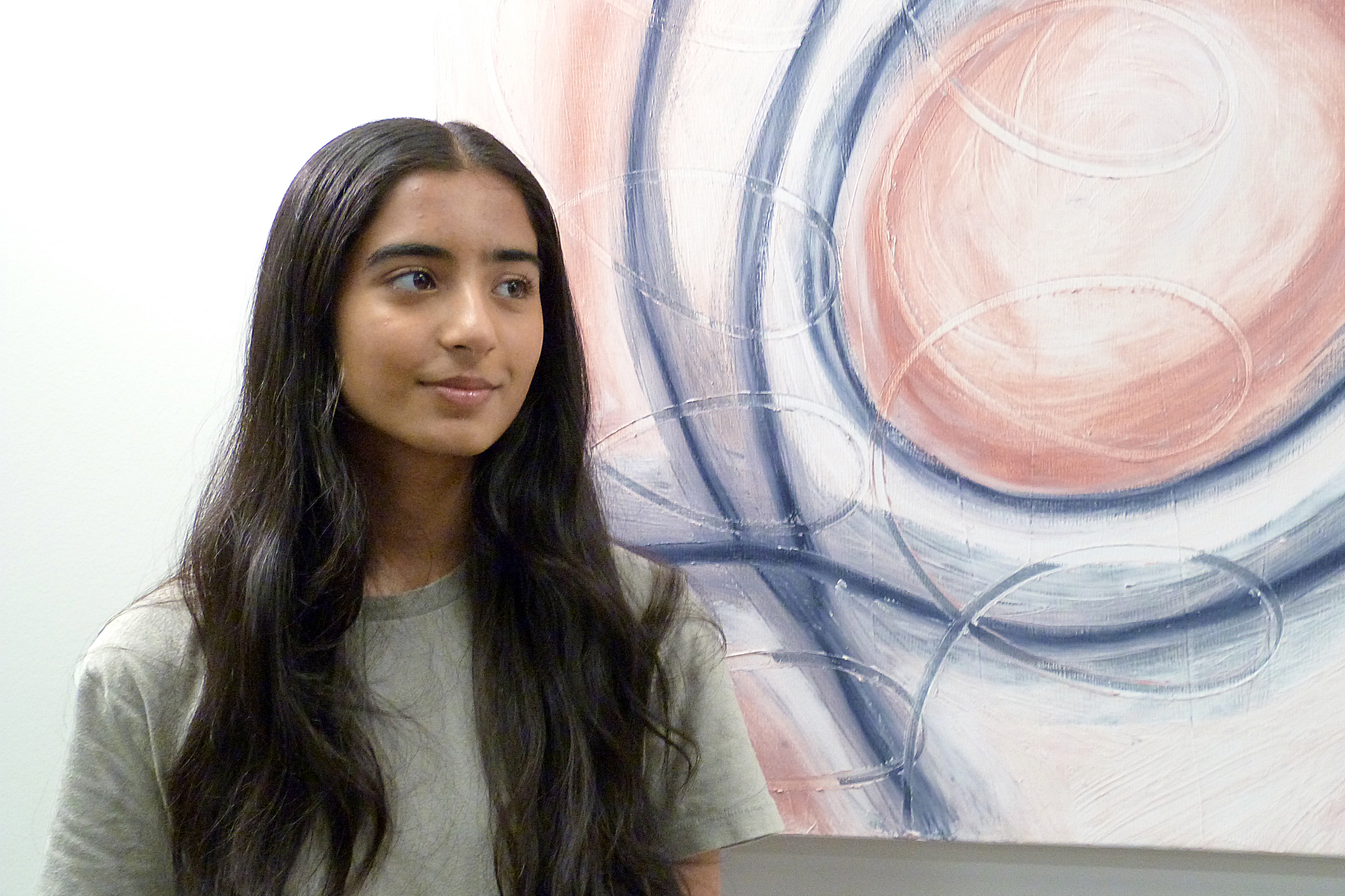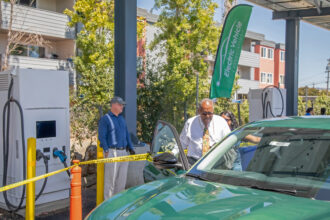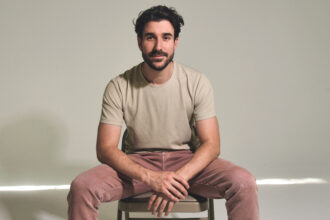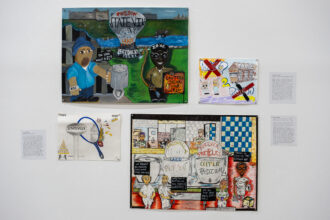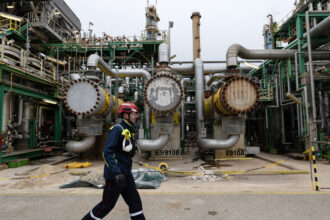DUBLIN, Calif.—Mira Shah was in sixth grade five years ago when a brush fire ignited on the hill in front of her house. Shah had heard that global warming was making natural hazards like wildfires more common and destructive. But climate change seemed like an abstract threat until a fire burned so close to home.
Then, in January, a series of catastrophic fires ravaged several Los Angeles communities, not far from one of Shah’s cousins and an aunt. Climate change made the hot, dry, windy conditions that fueled those fires 35 percent more likely, according to the international research organization World Weather Attribution.
For Shah, who had a burgeoning interest in economics, the L.A. fires crystallized her concern that climate change posed an urgent threat to lives and livelihoods. She started a small fundraiser to support firefighters and displaced families, and to raise awareness about the growing costs of a warming world.
But she wanted to do more.
She worried that her generation would bear the brunt of global warming’s consequences but seemed unprepared to combat it. “I decided I wanted to make my impact on the world and stop it from getting too bad,” said Shah.
Shah launched an online journal in July called Karbon Economics with the help of a few likeminded friends at Quarry Lane School, a private college prep school in Dublin, about 35 miles east of San Francisco, and nearby Monte Vista High School.
Karbon (Shah used a “k” to help it stand out) features essays, explainers and soon-to-be-published student research that explores “how economic forces shape our world—from the climate crisis and carbon markets to inequality, trade and development.” The student-run journal will enlist young voices “to shape a better-informed world” by making the economic dimensions of climate change more accessible.
“At a time when the United States seems to be abandoning the future to runaway global heating, it’s wonderful to see high-school students, especially three girls of color, launch this gorgeous venue for well-written, accessible articles about the current state of climate economics,” said Genevieve Guenther, an expert reviewer for the U.N. Intergovernmental Panel on Climate Change and founding director of the volunteer-run organization End Climate Silence. “I look forward to them developing their understanding of the issues as they dive further into the political economy of the climate crisis.”
Shah encourages high-school students “from any country” to submit articles that she and other student editors will peer review with academic mentors.
Aparajita Ghosh, a molecular biologist who teaches environmental science and society at Quarry Lane, plans to help oversee the peer-review process by vetting statistics, graphs, data interpretation and other technical elements.
Shah is taking Ghosh’s class, which started with an inspirational subject: Greta Thunberg, the Swedish climate activist who lambasted world leaders in 2019 for failing youth when she was 16 years old—the same age Shah is now.
“We’re going to be inheriting this problem, and we might actually have a chance of slowing it down.”
— Mira Shah
“This is very impressive, what Mira has done with a few of her friends,” Ghosh said. “It’s amazing what they are trying to do to increase our awareness, and do everything necessary to protect and save our environment.”
Shah started working on the project when she was in 9th grade. Climate change wasn’t much of a focus in junior high classes, she said.
“Although we see it in the news, it doesn’t really hit home,” Shah said. Residents of Dublin haven’t experienced hurricanes or flooding from sea level rise, she said, so they don’t really think about how actions that contribute to global warming affect people.
“I think especially the youth should know more,” Shah said. “We’re going to be inheriting this problem, and we might actually have a chance of slowing it down.”
A student-run climate economics journal is a “fantastic concept,” said Sandra Steingraber, an anti-fracking and environmental health activist and senior scientist at the Science and Environmental Health Network. “It enacts one of my core values, which is that science is for the people and it’s done by people and the distribution of science and communication of science is an integral part of the scientific process.”
This story is funded by readers like you.
Our nonprofit newsroom provides award-winning climate coverage free of charge and advertising. We rely on donations from readers like you to keep going. Please donate now to support our work.
Donate NowFocusing on climate economics makes sense since economic arguments are being used to bolster fossil fuels as more reliable and cheaper than renewables, Steingraber said. Now that batteries can store energy from solar and wind power, she said, those arguments are simply outdated.
Shah, whose father works in finance and whose grandparents run businesses and a philanthropic foundation in India, thought economics could reveal how climate change increases the costs of natural hazards while highlighting solutions, like creating incentives to fund clean energy. She also wanted to highlight how countries that didn’t build economies around the fossil fuels that drive climate change often face some of the most dire consequences.
She pointed to the Maldives, a low-lying island nation in the Indian Ocean that experts predict could be largely underwater by 2100.
Instead of just being aware of this risk, young people should consider the implications for residents, Shah said, rattling off a series of questions: Where can they go? Will it affect people in other countries? Will it affect the global economy? What if it happened to you?
Jasmin Ansar, senior climate researcher with the California nonprofit Climate Center, said it’s important for “everyone” to participate in discussions around climate. “In particular, students will be deeply affected by climate change and so they need a seat at the table.”
For her part, Shah wants to create a climate change curriculum for teachers to use in elementary school through high school, so even “little kids” understand that climate change is not an abstract threat.
Toward that end, she’ll feature the stories of people living on the front lines of climate catastrophes. Once students truly understand the devastating costs of fossil fuel economies on people’s lives, Shah believes, they’ll be motivated to mitigate the damage. Or at least realize that, if they don’t, they’ll be helping to create an unlivable future.
About This Story
Perhaps you noticed: This story, like all the news we publish, is free to read. That’s because Inside Climate News is a 501c3 nonprofit organization. We do not charge a subscription fee, lock our news behind a paywall, or clutter our website with ads. We make our news on climate and the environment freely available to you and anyone who wants it.
That’s not all. We also share our news for free with scores of other media organizations around the country. Many of them can’t afford to do environmental journalism of their own. We’ve built bureaus from coast to coast to report local stories, collaborate with local newsrooms and co-publish articles so that this vital work is shared as widely as possible.
Two of us launched ICN in 2007. Six years later we earned a Pulitzer Prize for National Reporting, and now we run the oldest and largest dedicated climate newsroom in the nation. We tell the story in all its complexity. We hold polluters accountable. We expose environmental injustice. We debunk misinformation. We scrutinize solutions and inspire action.
Donations from readers like you fund every aspect of what we do. If you don’t already, will you support our ongoing work, our reporting on the biggest crisis facing our planet, and help us reach even more readers in more places?
Please take a moment to make a tax-deductible donation. Every one of them makes a difference.
Thank you,


